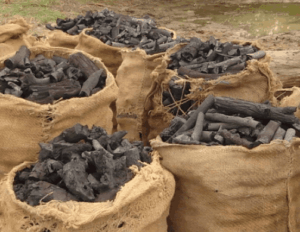Change the trend of firewood and charcoal usage – government urged
 Stakeholders have called on government to revitalize existing policies and help halt the trend of people using firewood and charcoal as fuel.
Stakeholders have called on government to revitalize existing policies and help halt the trend of people using firewood and charcoal as fuel.
They said the continued use of firewood and charcoal, and many in the society being unable to have access to clean cooking equipment is affecting the collective effort and violating the principles of environmental health.
They said the usage of Liquified Petroleum Gas (LPG) is a key development intervention and that without this, ill health would dominate the lives of many in the society.
This was made known in Accra at the Ghana Clean Cooking Forum 2018, held under the theme: “Translating Sector commitment’s into scalable market impacts”.
The forum brought together experts from the Energy Commission, Centre for Scientific and Industrial Research (CSIR), Ministry of Energy, Global Alliance for Clean Cookstoves, and the Netherlands Development Organisation (SNV).
The stakeholders said many premature deaths could be attributed to household air pollution from inefficient cooking practices using polluting stoves, firewood and charcoal.
They said there is the need for an ambitious action plan by the Ghana Alliance for Clean Cookstoves (GHACCO), built on the existing diversity of new renewable energy potential with a dedicated attention to decentralised solutions to promote the production and use of clean cooking.
The stakeholders said the access rate and availability of energy services in rural areas was still very low, adding that “this situation cannot help attain the Millennium Development Goal (SDG)” by 2020.
Dr (Mrs) Jane Afriyie-Mensah of the Korle Bu Teaching Hospital, who graced the occasion with insightful presentations on “biomass fuel exposure and its adverse effect on respiratory health”, expressed her support to the initiative of GHACCO.
She referred to a survey conducted by the World Health Organisation (WHO) in 2009, indicating that the exposure of household to smoke is the leading cause of environmental deaths worldwide.
“Lung cancer is on the increase among non-smoking women, asthma is also increasing among children because their mothers prepare foods with their babies at their back”, she said.
She said collaboration with all stakeholders, in this regard, cannot be over-emphasised adding that “it is now so endemic so we need to collaborate to curb the current air pollution which is dangerous and threat to public health”.
Dr Afriyie-Mensah said, the situation, if allowed to proceed unchecked can have serious adverse effects on the sustainability of the National Health Insurance Scheme (NHIS) since many diseases were related to air pollution.
Mrs Sarah Naa Deidei Agbey, GHACCO Board Chairperson, in an interview with the Ghana News Agency said, GHACCO would embark on a vigorous campaign to stress the need for everyone to use LPG.
She said “as people improved their income levels, they adopt to the use of LPG to save their lives and money”.
She said GHACCO remains the only association representing producers, distributors and promoters of clean cookstoves, creating public awareness of the health, economic and environmental benefits of using clean cookstoves, LPG and bio fuels.
Madam Alima Mahama, Minister of Local Government and Rural Development, said the private sector is the engine of growth “that is why we are working with all stakeholders to find solutions and introduce the latest technology in cooking industry”.
She said government has the responsibility to use its resources in the most cost effective manner to select technology that provides maximum health benefits to a greater number of people in the country.
Mr Harm Duiker, Country Director of SNV, sponsors of the forum, called on stakeholders to explore ways of increasing access to safe clean cooking as committed under SDG Seven.
He said the “Government of Ghana and SNV as development partners must prioritise clean cooking solutions into pragmatic experience based policies and verifiable actions and projects that will catalyse the creation of a thriving market and increase access to modern cooking energy in the country.
Source: GNA
